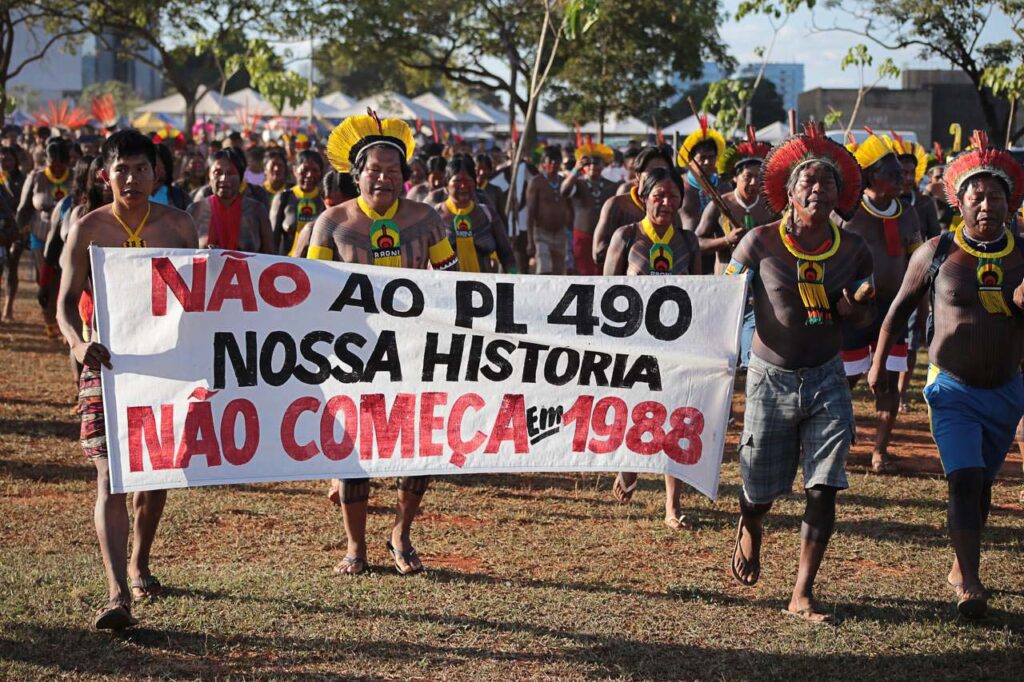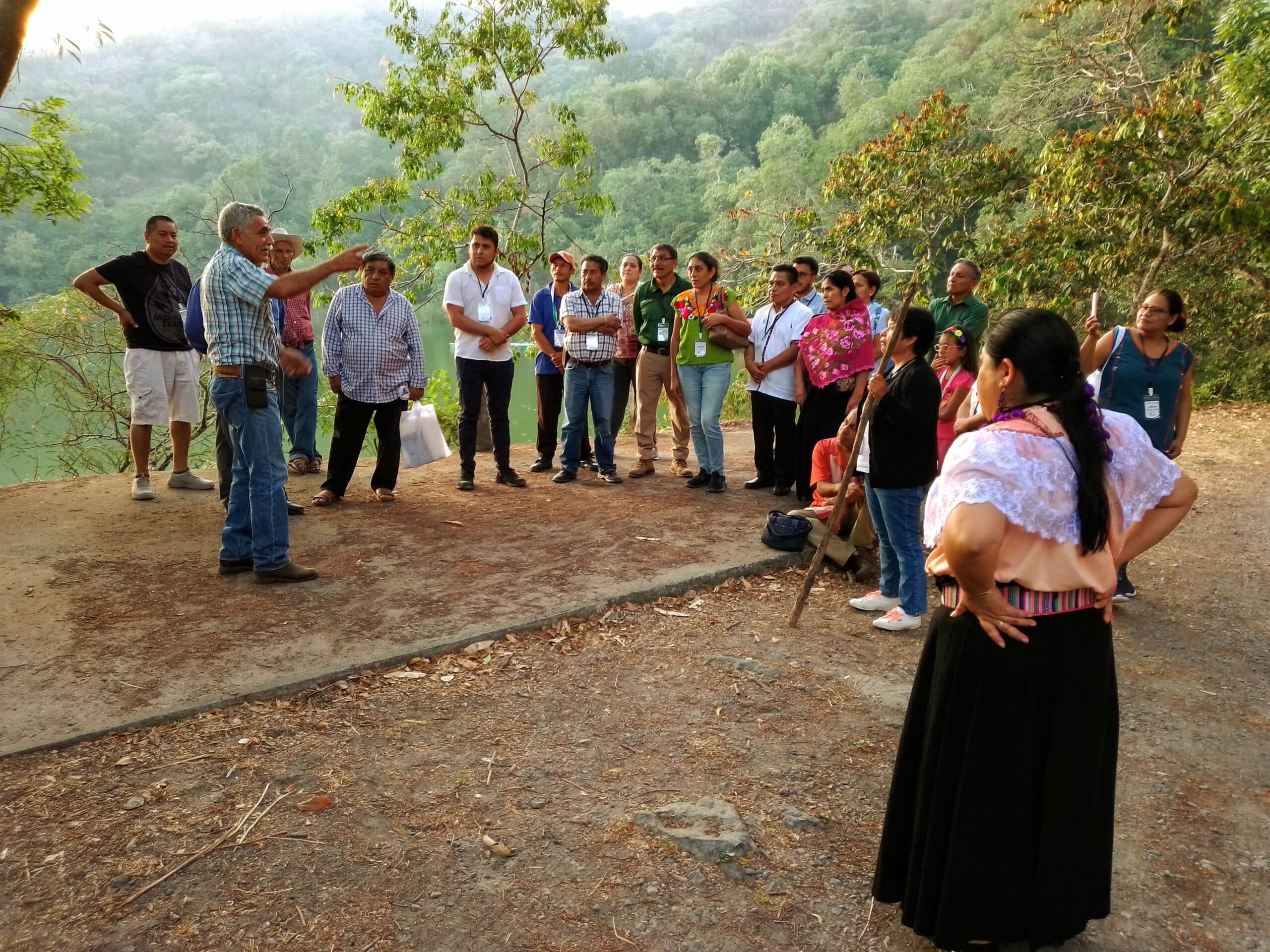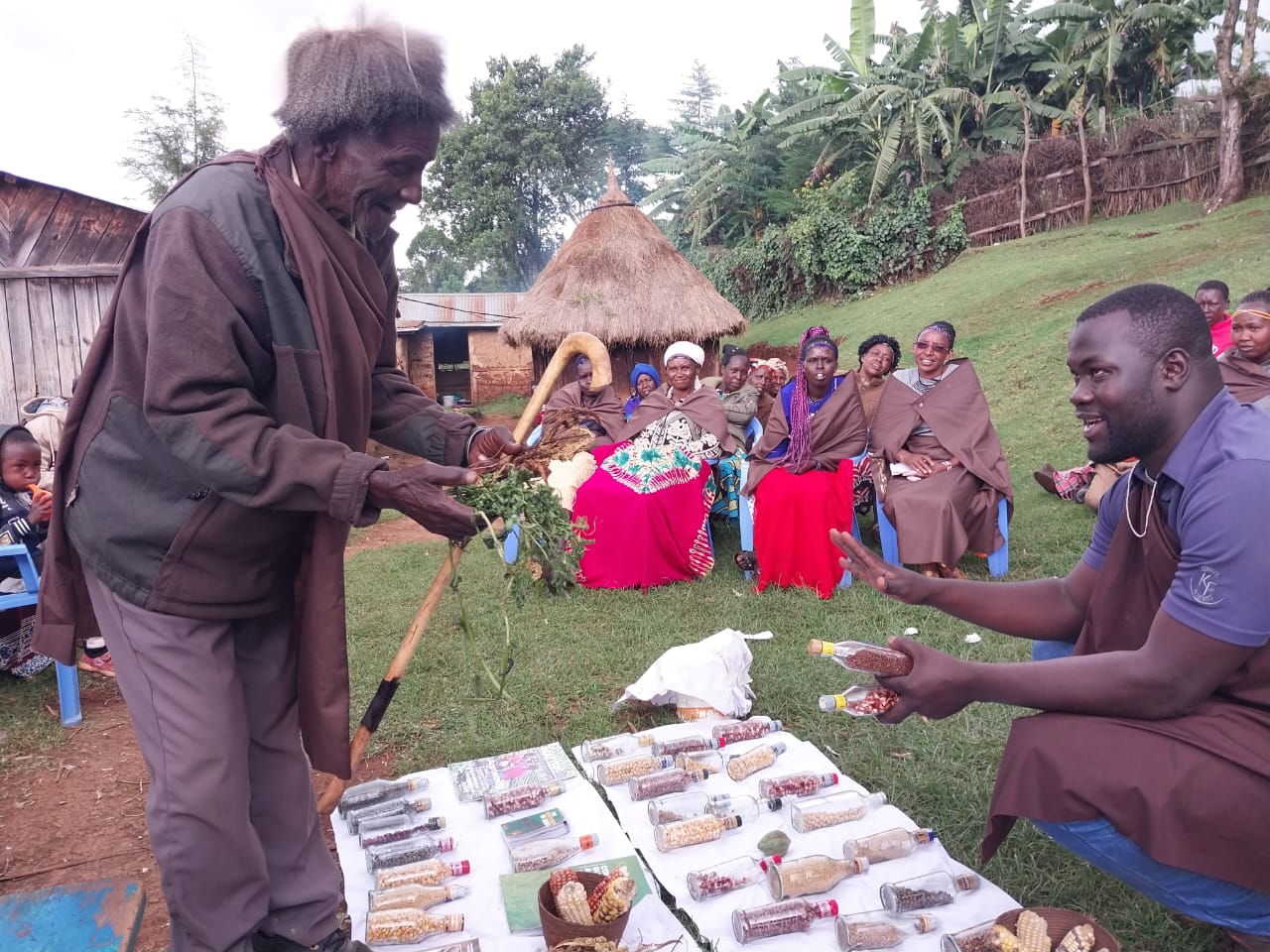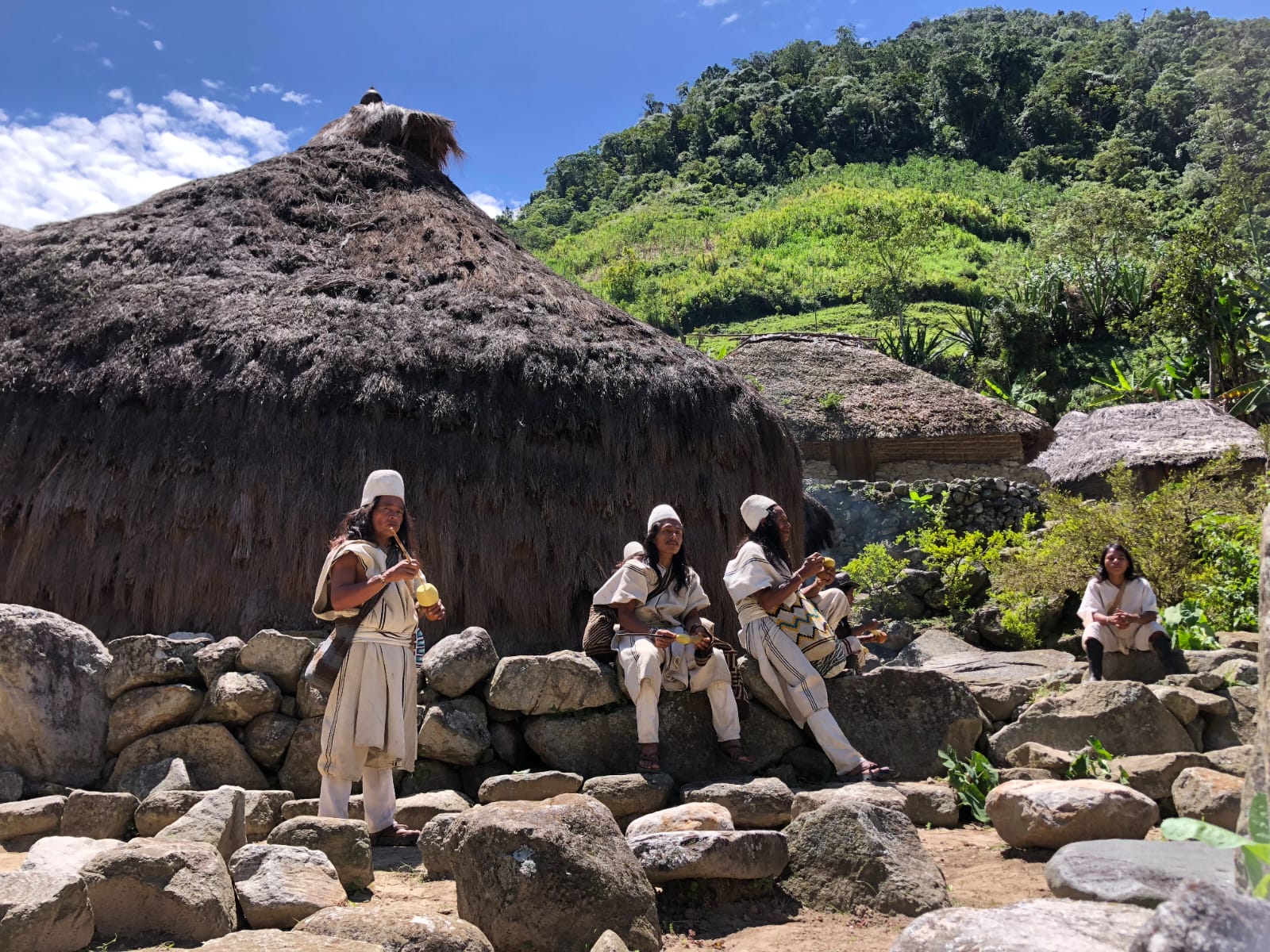The Brazilian Constitution of 1988, (Art. 231), grants Indigenous Peoples the right to land they have “traditionally occupied”, and since that date 761 territories have been claimed, although only 475 have been formally recognized and adjudicated.
The ‘Marco Temporal’ concept (promoted by ‘Ruralist’ legislators who represent the interests of agribusiness, miners and cattle ranchers) seeks to limit the right to those Peoples who can demonstrate that any territory claimed was occupied by them before the enactment of the Constitution. All future, and even some past claims, would consequently be subjected to the ‘Marco Temporal’ burden of proof, representing a clear and present danger to Brazil’s Indigenous Peoples.
On September 21st of this year, in a ruling widely celebrated by Indigneous Peoples and their allies, the country’s Supreme Court declared the ‘Marco Temporal’ concept to be unconstitutional.

In response, the opposition dominated Brazilian Senate recently passed PL2903, or the ‘Marco Temporal’ legislation, in both clear defiance of the Supreme Court’s decision, and as a challenge to the legitimacy of the Court itself.
The law not only ignores the Supreme Court’s ruling, it also contravenes the rights of Indigenous Peoples enshrined in the United Nations Declaration on the Rights of Indigenous Peoples (UNDRIP), which states in Art. 26, that:
- Indigenous peoples have the right to the lands, territories and resources which they have traditionally owned, occupied or otherwise used or acquired.
2. Indigenous peoples have the right to own, use, develop and control the lands, territories and resources that they possess by reason of traditional ownership or other traditional occupation or use, as well as those which they have otherwise acquired.
3. States shall give legal recognition and protection to these lands, territories and resources. Such recognition shall be conducted with due respect to the customs, traditions and land tenure systems of the indigenous peoples concerned
There is no doubt that if the opposition dominated Senate succeeds in its attempt to defy the Supreme Court’s ‘Marco Temporal’ ruling, the resulting damage to Indigenous Peoples, including 144 Peoples living in Voluntary Isolation, would be grave.
The major Indigenous groups and their civil society allies are therefore calling on President Lula da Silva to veto Bill 2903/2023 in its entirety.
For LAND IS LIFE, the issue is clear. In whatever form, or by whatever mechanism, the ‘Marco Temporal’ is a major threat, not only to Indigenous Peoples and their cultures, but also to the Amazon rainforest, as it would open up major tracts of land to the possibility of deforestation. For LAND IS LIFE, Indigenous Peoples and their cultures have a basic human right to exist, and to flourish within their territories. The Marco Temporal therefore represents a dire threat to that right, and must be resisted.



